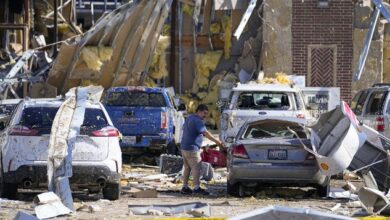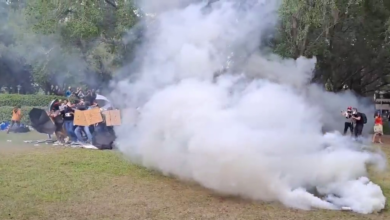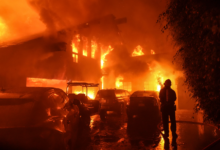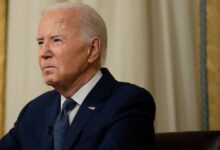Newsom Stands Against Trump’s Deportation Agenda as Immigration Battle Redefines 2026 Political Landscape
California Governor Gavin Newsom is leading Democratic opposition to Trump’s mass deportation crackdown, defending undocumented immigrants amid rising tensions.
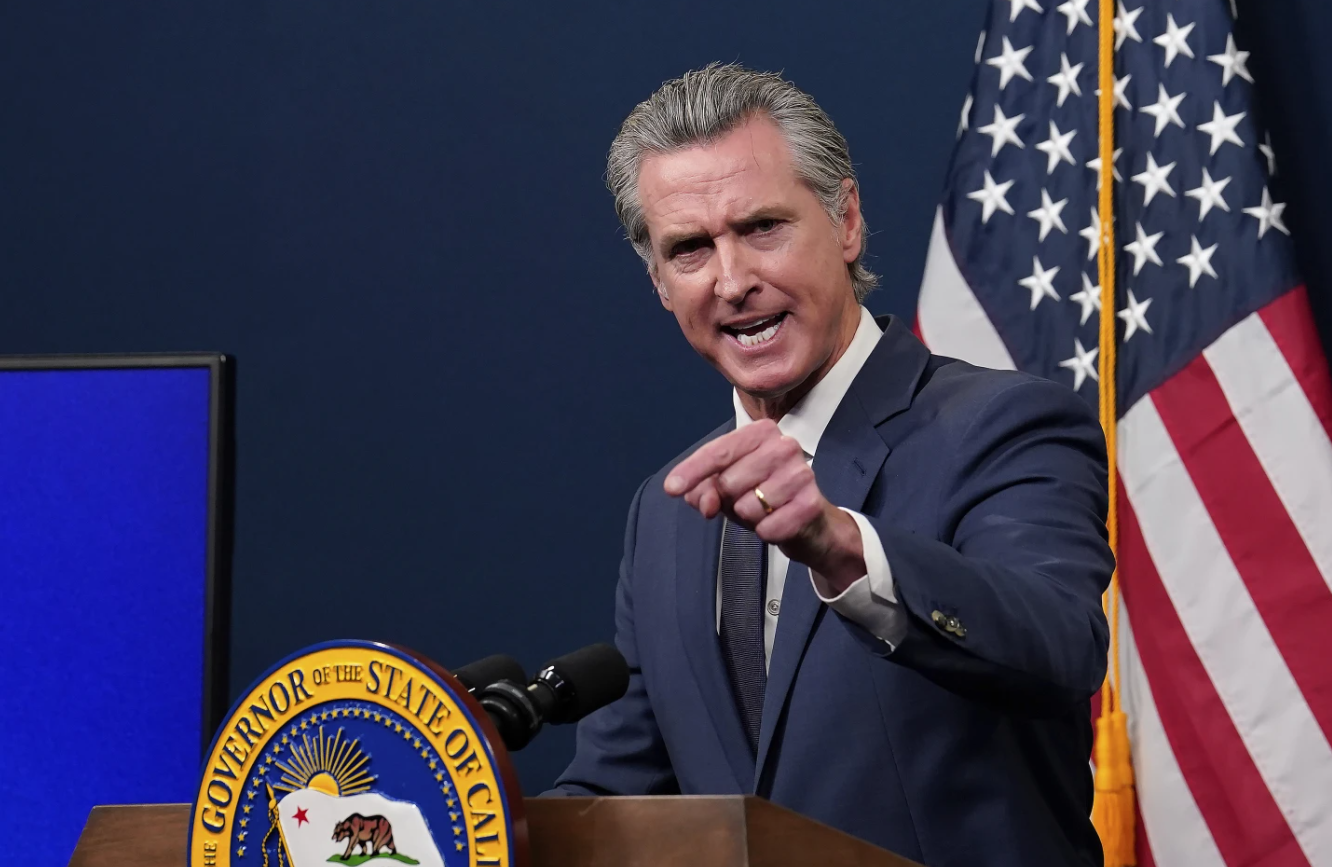
WASHINGTON (WE) — California Governor Gavin Newsom looked directly into the camera, delivering a bold and urgent message to the nation. He presented himself not only as a critic of President Donald Trump’s aggressive immigration policies but also as a defender of the millions of immigrants now facing federal raids.
In his video address, Newsom made it clear that many of the targeted individuals were not violent criminals. Instead, they were hardworking people — “parents picked up at Home Depot lots and garment factories,” he said — who were being detained by masked agents supported by National Guard troops.
Consequently, Newsom’s stance has ignited fierce debate within both major political parties. Democrats must now decide how closely they want to align with his message. This is especially pressing in the wake of rising voter frustration over illegal immigration, which played a major role in Trump’s return to the White House.
Nevertheless, Senate Majority Leader Chuck Schumer of New York praised Newsom for taking a bold stand. “He’s refusing to be intimidated by Donald Trump,” Schumer said. From the streets of Los Angeles to the corridors of Capitol Hill, Americans are confronting a fundamental question: how to reconcile the country’s identity as a nation of immigrants with its responsibility to enforce immigration laws.
At the heart of this political conflict is a staggering number: more than 11 million people are living in the U.S. without legal documentation. Additionally, millions more are under temporary protections. As Trump vows to deport 1 million immigrants annually — roughly 3,000 per day — the political and human stakes are growing by the hour.
Trump’s campaign was built on this very promise. His supporters chanted “build the wall” at rallies, and now, as he orders the deployment of Marines and National Guard troops to enforce immigration law in major cities like Los Angeles, his vision is becoming a reality.
Meanwhile, protests have erupted across the country. In Los Angeles, the crackdown has been particularly tense. According to police, officers detained more than 200 individuals who refused to disperse during the demonstrations. In addition, they arrested 17 people for violating the 8 p.m. curfew. Authorities also took several individuals into custody for possessing firearms and assaulting police officers. Notably, prosecutors charged two people for allegedly throwing Molotov cocktails at law enforcement.
As expected, Republicans have seized the moment. House Speaker Mike Johnson claimed Newsom had turned California into “a safe haven for violent criminal undocumented people.” Similarly, Senator Tom Cotton called the events in Los Angeles “riots” and even suggested further military deployment. In a Wall Street Journal op-ed, he asserted, “The American people elected Donald Trump and a Republican Congress to secure our border and deport violent undocumented people. That’s exactly what the president is doing.”
Nevertheless, not all Republicans support Trump’s extreme approach. For instance, Representative David Valadao, who serves California’s Central Valley, voiced concern. On X, he wrote, “I remain concerned about ongoing ICE operations throughout CA.” He urged the administration “to prioritize the removal of known criminals over the hardworking people who have lived peacefully in the Valley for years.”
Moreover, with the 2026 midterm elections looming, both parties face renewed pressure to define their immigration stances. This current debate mirrors previous political battles, particularly during the Barack Obama administration. Back then, efforts focused on balancing border enforcement with pathways to citizenship, especially through programs like DACA.
However, the political climate has shifted dramatically. Today, Trump’s return to the Oval Office has rekindled efforts to deport not only undocumented immigrants but also those who entered legally during the Biden administration and are still awaiting hearings.
In contrast, Democrats are attempting to rally behind a more humane approach. Joel Payne, a Democratic strategist, noted that Americans are torn between Obama’s message — that the U.S. is both “a nation of laws and a nation of immigrants” — and Trump’s aggressive enforcement style.
“Democrats still have work to do to be consistently trustworthy messengers on the issue,” Payne explained. At the same time, he cautioned that Trump’s heavy-handed tactics could create public backlash. “Acting as a chaos agent in the middle of trade wars and economic uncertainty may sow havoc.”
Republican messaging, however, remains sharp and focused. During a private meeting with White House Press Secretary Karoline Leavitt, Representative Richard Hudson framed the Democrats as enablers of “rioting and chaos.” Republicans argue they stand for “law and order,” a message that will likely dominate campaign ads in the coming months.
Read More:
- Trump Authorizes Marines and Thousands of National Guard to Los Angeles Amid Immigration Protest Crackdown
- Guardians of Order or Agents of Escalation? Los Angeles Erupts Amid Tear Gas and Troops
- Trump-Musk Fallout Sparks GOP Anxiety as Lawmakers Urge Reconciliation Amid Policy Clash
Yet Democrats are not backing down. Representative Suzan DelBene, head of the Democratic Congressional Campaign Committee, highlighted Representative Tom Suozzi, who recently won a tough special election in New York. Suozzi addressed immigration concerns directly, even confronting Republican opponents at press conferences.
“Trump said he was going to go after the worst of the worst, but he’s ignored the laws and due process,” DelBene told the Associated Press. “The American people reject that.”
She added, “People want a government that’s going to fight for their needs and move this country forward. They want a Congress that acts as a check on this president.”
Simultaneously, advocacy groups are taking action. RAICES, United We Dream, and similar organizations are offering legal assistance, emergency shelters, and mental health support. Churches in California have also opened their doors to immigrant families fearing raids. As a result, Los Angeles Unified School District reported lower student attendance in several neighborhoods.
Elsewhere, similar scenes are unfolding. In Omaha, Nebraska, ICE agents recently raided a meatpacking facility, detaining dozens. Local officials say these raids are sowing fear and instability in already vulnerable communities.
Inside Congress, the odds of passing any bipartisan immigration reform remain slim. Previously, lawmakers attempted to build consensus around a mix of border security and citizenship pathways. Today, however, the political center has collapsed under the weight of partisan polarization.
Nevertheless, not all hope is lost. Senator Dick Durbin used DACA’s 13th anniversary to remind colleagues that immigration touches every part of American life. “Immigration has many faces,” he said. “These are our students, our neighbors, our coworkers.”
Despite the heated rhetoric, Democrats remain united in opposing Trump’s latest immigration bill, which includes $150 billion for new ICE agents, detention facilities, and deportation flights. Even so, some Democrats have begun acknowledging the need for tougher border enforcement, especially to deter smugglers and remove individuals with violent criminal records.
In the end, the political fight is no longer just about policy. It’s about the country’s values, its soul, and the future of millions of families. While Republicans lean into law-and-order language, Democrats are striving to offer an alternative — one rooted in justice, order, and compassion.
As Governor Newsom continues to speak out, he embodies a Democratic resistance movement that may grow stronger in the months ahead. Whether voters will embrace that vision in 2026 remains uncertain. But one thing is clear: the immigration battle has become a defining issue of this political generation.



